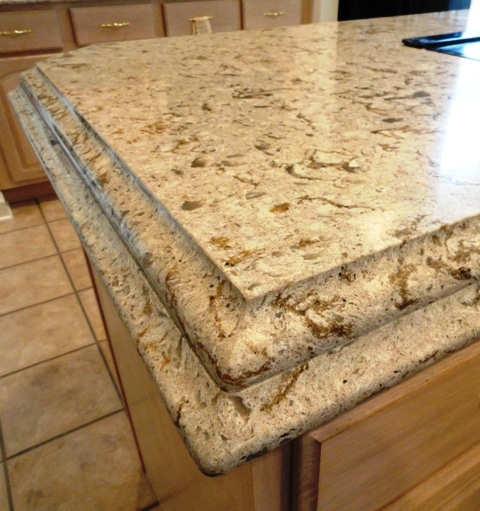This blog post explains how often one should seal granite countertops and why. It also talks about the steps of sealing a granite countertop and gives you some great advice on how to seal your own countertops to save money.
Many people believe that granite is a very porous type of material, so it doesn’t need any sealing agent. This, though, is not true-granite needs sealing to keep its shine and prevent stains from getting onto its surface.
Why do we need to seal the granite countertops?

We should be sealing our granite countertops each year because granite is a natural stone. Natural stones tend to have porous surfaces, so oils and dirt can get trapped inside the surface over time, and they can also get trapped under the seal. The best way to prevent this is to keep sealing your countertop every year.
Also, sealing granite countertops will help it to look nice for a longer period of time. Granite is a lovely and classy material that creates a luxurious feel in any kitchen or bathroom.
This material is really worth the price because granite countertops will look good for at least 20 years if they are properly sealed.
You May Also Like: 7 Granite Countertop Edges: Choosing the Best One
How often should I seal my granite countertops?

It depends on how much time your countertop spends in the sun and how many people use your kitchen.
If you have a lot of traffic in your kitchen, it is highly recommended to seal your countertops every 6 months.
If your kitchen doesn’t have a lot of traffic, you can wait up to 1 year between sealings.
It is recommended to take action and seal your countertops before stains actually start visible on them. If you wait to seal your countertops, you may find that your countertops already have stains on them that look not pleasant.
Sealing granite countertops is not a difficult task. There are many products available in the market today that make this task very easy.
How do I know if my granite needs to be sealed?

When you are sealing your granite countertops, you will need to pay attention to certain signs that let you know that your granite needs to be sealed.
The most obvious sign is there is a lot of water stains and/or spots on the surface of your countertop. The stains may be from the water that is trapped under the sealant.
Nowadays many countertops are treated with a sealer to prevent stains and spots from getting on them, but sometimes it’s still possible for stains and spots to get there if not enough protection is given to them.
Another sign is a lot of dust and hair can be visible on the surface of the granite countertop. These are signs that your kitchen has been used in a dirty environment, and it has been contaminated by dust and hair.
It is important to pay attention to these small details. As we mentioned before, your countertops should be cleaned every day if they are in a kitchen that has a lot of traffic.
What are the potential risks of not sealing my new countertop?

Your countertops may become damaged over time and start developing stains that may spread on other parts of the countertop. This is not a problem that can be easily fixed, so it is essential to take action now.
How-to seal granite countertop

You can seal your countertop in several ways, depending on your practicality. One way is to get a cover for your countertop that will fit perfectly and keep dust and dirt off of it. The other way is to go through the process of sealing your countertops yourself.
Seal granite countertop with a cover
A good way to protect your countertops and keep them clean is to get a granite cover for them.
There are many covers in the market today that will fit your countertop perfectly. You can search for these on the internet or go to a local store to get them.
Seal granite countertop with sealants
If you would like a less expensive way to seal your countertop, you can use different sealant types.
You can get these sealant materials at any hardware store or local home improvement store. You can use these materials to seal your countertop and test it first before actually applying it.
Sponge clean your countertop with a soft sponge. You can use these greasy sponges to clean all of the grease and oils that may have been trapped on your countertop.





